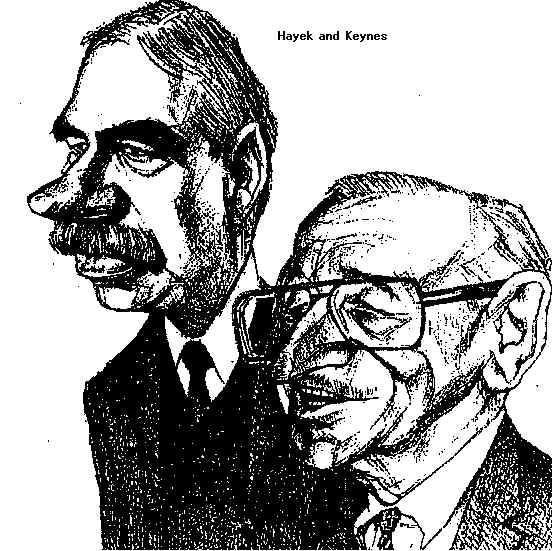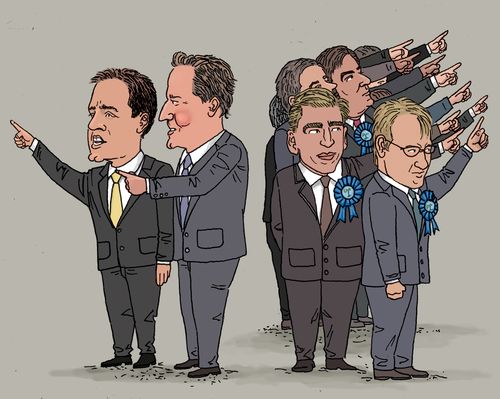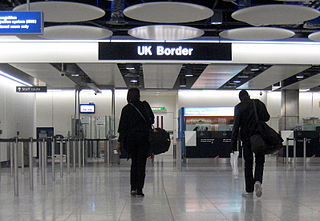
Contemporary British Politics and the Phenomenon of the Guru
What do John Maynard Keynes, Michael Young, Thomas Balogh, Friedrich von Hayek, Milton Friedman, Eric Hobsbawm, Anthony Giddens, Phillip Blond, Tim Soutphommasane and Michael Sandel have in common? Apart from them all being intellectual men, they were, at one time or another, recognised, often by everybody except themselves, as ‘gurus’.

Towards a New Politics of Production
The coalition government is nearly halfway through its term and little way towards finding a strategy for growth. For the British Labour party, several key priorities for growth are taking shape, but sharper definition is now required The Left has to identify a new politics of production and growth. The recent UK growth statistics underline the catastrophic damage and continuing aftershocks inflicted by the financial meltdown in 2008-9, exacerbated by the never-ending crisis in the eurozone. Despite it’s disastrous track-record of macro-economic management, epitomised by the Lawson boom in the late 1980s and George Osbourne’s ill-timed retrenchment since 2010, the Conservatives have consistently positioned themselves as the party of fiscal discipline and economic competence, as well as the party of …

A Shift to the Right: Conservatism Beyond Cameron’s Coalition
‘Conservatives need to recast the argument about free enterprise for a new age, or risk losing the debate to a tide of anti-market socialisation.’ Elizabeth Truss MP David Cameron’s first major Cabinet reshuffle since becoming Prime Minister in May 2010 was accused or hailed as signifying a ‘shift to the right’. The bruiser of the Tory Left Kenneth Clarke was replaced at the Ministry of Justice by Chris Grayling, a darling of the Tory Right. Matthew Hancock and Michael Fallon, two unabashed Thatcherites, have been installed as Business ministers whose primary purpose is to restrain the egalitarian and regulatory urges of Vince Cable. Other signals that the Coalition has moved to the ideological Right bear witness with …

UK loses a set in its match with Assange
In an Op Ed in last weekend’s Ottawa Citizen, I commented on the Catch 22 situation the UK government now finds itself in with respect to Julian Assange. Earlier this week, the Foreign Minister of Ecuador, Ricardo Patino, announced his government’s decision to provide ‘diplomatic asylum’ to the founder of the Wikileaks website, who took up residence in the embassy in mid June to avoid extradition to Sweden to face questioning related to alleged sexual offences. In one sense, nothing has changed. British Foreign Secretary William Hague maintained yesterday that despite the decision of officials in Quito (the Ecuadorean capitol) to grant asylum, the UK will not allow Mr. Assange safe passage to Ecuador. He also rightly pointed out that the …

Does Miliband say anything new about immigration?
Over a month ago, Labour leader Ed Miliband gave a much-trailed “major” public address on the topic of immigration. After Labour had largely remained quiet about the issue in the first two years of the Coalition government, Miliband touted his speech as the first step in a new conversation, and offered extensive apologies about Labour’s past policies on immigration in a bid to begin to rehabilitate Labour’s public image in this policy area. The apologies seemed to attract most of the headlines. Commentary from the political right welcomed this admission either wholeheartedly or with considerable scepticism (Daily Mail headline: “…What Sick Hypocrisy”). Commentators on the political left argued that Miliband should not have apologised for Labour’s record, disputed his claim …

The status-less child in contemporary Britain
Over the last decade, Western governments have increasingly used enforced removals, assisted voluntary returns and denials of entry in the country as instruments for governing unauthorised immigration. The number of immigrants removed from the US with one of these tools has gone from 120,000 in 2001 to 395,000 in 2011. The capacity to enforce removals has been raised to the status of an indicator of the state’s capacity to protect its citizens. Sarkozy’s high profile campaign that led to the expulsion of thousands of Romanian Roma from France in 2010 is exemplar of the use of removal figures for gaining political capital. In the UK, between 2001 and 2011 the number of forced and assisted removals spiralled from 17,000 to …

Is There a Solution to the Falklands/Malvinas Conflict?
The Falklands is a perennial red top tabloid favourite. But aside from providing patriotic copy, it is a squabble with serious diplomatic consequences. What to do (or not do) in the case of the islands remains tricky. Is there a solution? Theoretically, yes; practically, no. Theoretically, both countries could agree to a Hong Kong-like lease-back formula, whereby Argentina is accorded legal sovereignty over the islands but the British continue to govern them for a long period of time. This was a scheme conceived by the Foreign Office prior to the Falklands Crisis of 1982, though it had precious little political support in Britain. In the wake of the war, it became a dead letter. Another possible solution could be for …
Cutting the Costs of Bureaucracy: Are We Nearly There Yet and How Would We Know?
In 1955 G.A. Campbell wrote ‘[s]o long as officials obtained the whole or part of their income from fees, the total cost of the Service remained hidden. Parliament needed to provide no money at all for salaries in some departments, and where revenue did not balance expenditure it voted only for the difference. Under the new arrangements [after 1837] Parliament saw for the first time the wages bill of the public administration. The cost seemed to members of both Houses to be enormous. […] There has never since been a time when Parliament has not thought the Civil Service to be too costly and sought, more or less urgently, for economies in administration.’ (The Civil Service in Britain, Penguin, p. …









